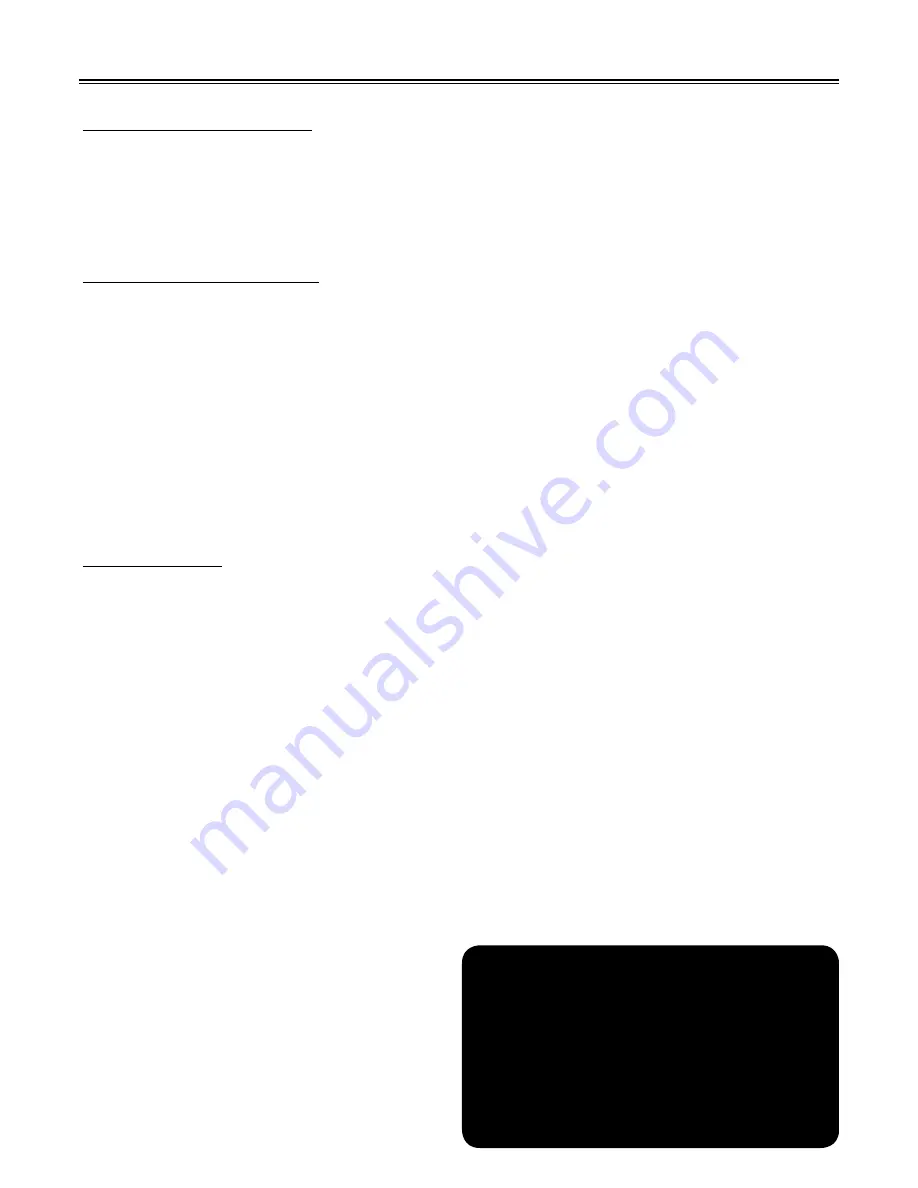
Gas Requirements
L.P. GAS INSTALLATION
Gas Heaters that are set to operate with L.P. gas come with a high capacity hose and regulator assembly.
(Note: Only use the pressure regulator and hose assembly supplied with the heater or a replacement
pressure regulator and hose assemblies ).
This assembly is designed to connect directly to a standard
1 lb. L.P. cylinder. L.P. Cylinders are not included with the heater. L.P. Cylinders they can be purchased
separately at an independent dealer.
L.P. TANK INFORMATION
Never use a dented or rusted L.P. tank or cylinder with a damaged valve.
The L.P. cylinder must have a shut-off valve terminating in an L.P. gas supply cylinder outlet specified,
as applicable, for connection No. 510 in the standard for compressed gas cylinder valve outlet and inlet
connection ANSI/CGA-V-1. Cylinders must not be stored in a building, garage, or any other enclosed area. (The
L.P. cylinder must have an overfill protection device, OPD, and a collar to protect the cylinder valve.)
The L.P. gas supply cylinder must be constructed and marked in accordance with the specifications for L.P.
gas cylinders of the U.S. Department of Transportation (DOT) or the National Standard of Canada, CAN/
CAS-B339, “ Cylinders, Spheres and Tubes for the Transportation of Dangerous Goods and Commission.”
L.P. TANK USE
• When not in use, gas supply cylinder valve is to be in the “ OFF” position.
• The tank supply system must be stored upright to allow for vapor withdrawal.
• The regulator and hose assembly must be inspected before each use of the heater. If there is excessive
abrasion or wear or if the hose is cut, it must be replaced prior to the heater being used again.
• Cylinders must be stored outdoors out of the reach of children and must not be stored in a building, garage
or any other enclosed area.
• Place dust cap on cylinder valve outlet when ever the cylinder is not in use. Only install the type of dust cap
on the cylinder valve outlet that is provided with the cylinder valve. Other types of caps or plugs may result
in leakage of propane.
▲
!
WARNING
DO NOT store a spare L.P. gas cylinder under or near
the heater. Never fill the cylinder beyond 80% full.
If this information is not followed exactly, a
fire causing death or serious injury may occur.
9

































